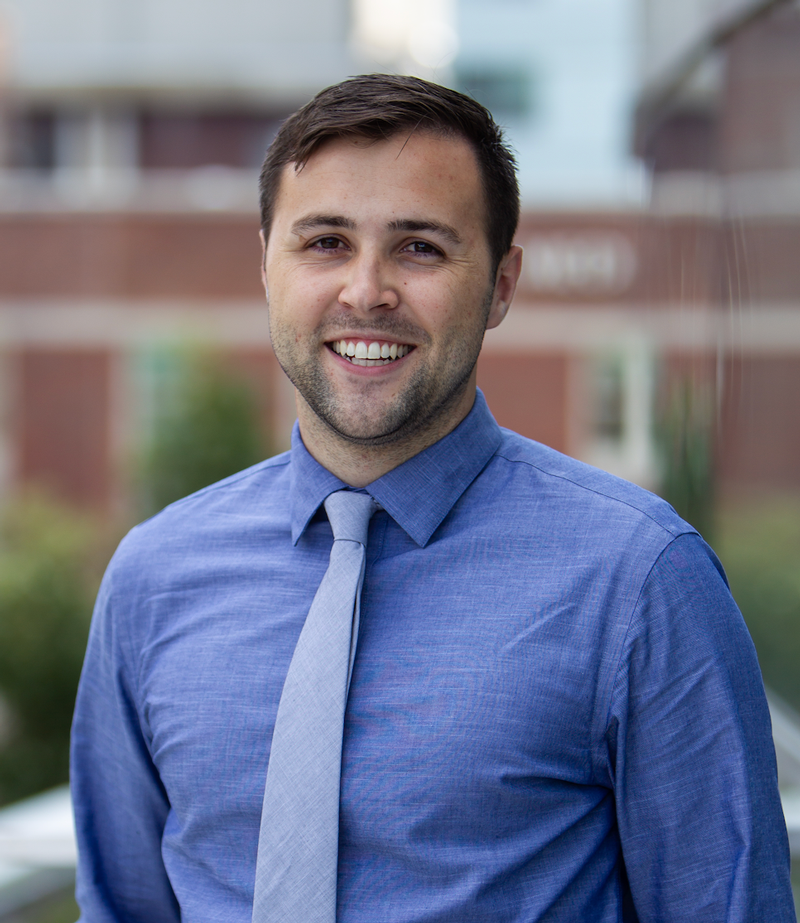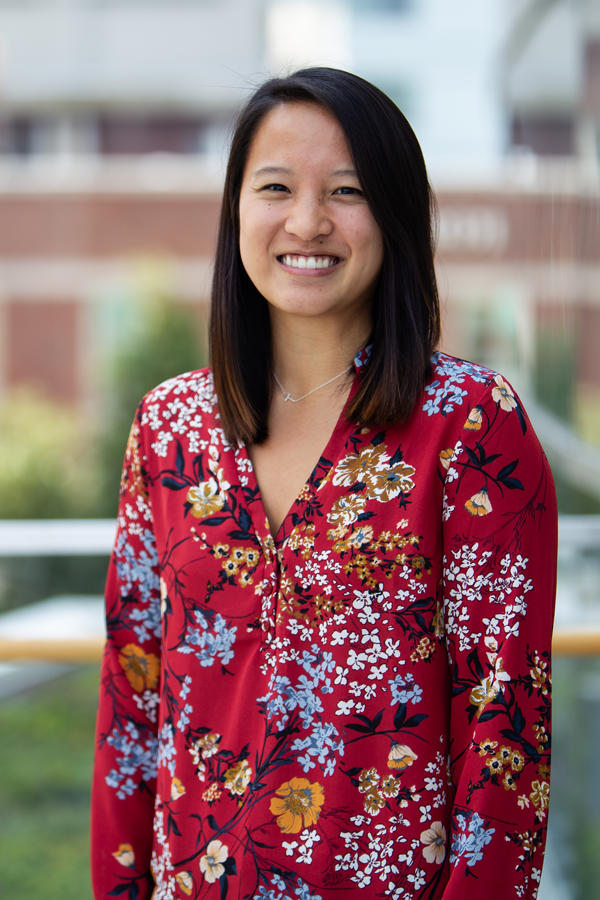Behind the Scenes of the M2 Practical Skills Elective
by Emma Mattson
The unique Practical Skills elective starts its third session of the year next week, and three new leaders are joining the team: Amany Alshibli, Lex Erath, and Jessa Fogel.

M4s Peety Kaur, Andrew Rees, and Hannah Kay have led this two-week elective, which runs three times each year, through the 2020-2021 academic year. With only two to five M2 students per session, the course’s intimate learning environment ensures strong one-on-one pedagogy and lots of hands-on practice.
The brainchild of med students Danny Zakria (‘21) and Joe Gibian (‘20), the elective offers an opportunity for med students to gain practical clinical skills early in their career. Since M2s go through the clerkships in different orders, there’s no standardized process for learning skills like placing an IV line, bag masking, or suturing, but students are still expected to know how to do those things when they become residents, Kay said.
To fill this gap, Zakria and Gibian dreamed up a two-week M2 course to fill this gap, and thus the Practical Skills Elective was born.
Two years later, a new set of med students keeps the course up and running: structuring curriculum, planning clinical experiences, and recruiting experts to lead sessions on skills ranging from splinting to IV placement.
Week 1: Hands-On Learning

The first week of the elective is all about learning by doing. Each year, the leaders bring in field experts—from residents to nurse practitioners to trauma surgeons —to demonstrate and teach a range of practical skills.
The student leaders get a chance to show their knowledge, too. This year, for example, Rees, who’s headed into orthopedic surgery residency, led a section on splinting. Kaur, a future obstetrician-gynecologist, led a session on basic wound dressing changes.
Next, the students proceed to Vanderbilt’s Center for Experiential Learning and Assessment (CELA), where they practice placing an IV, intubating, and running codes.
Week 2: Into the Wards

In the second week of the course, it’s time to put this knowledge into practice in real clinical situations by rotating through four clinical shifts: orthopedics, the GI lab, anesthesiology, and the emergency department.
“A lot of these skills you can only learn by doing them and having someone show you,” Kay said. “We want our students to know what are the indications, what are the contraindications, what are the complications of these procedures.”
And, Rees says, the skills are immediately translatable to many M2 clerkships.
“It’s really cool to have students come back and [say], ‘Hey, I got to do this because I learned it in the course,’” Rees said. “That’s one of the most rewarding things about it, because you’re actually making their education better.”
Hands-on Participation in Med Education
For Kaur, the joy of leadership lies both in teaching and the people she gets to teach with.
“For me, it’s been really awesome to see really good teachers educating students and learning from that process and the strategies they use to help students learn,” Kaur said.
The educator role is one she and her co-leaders will assume more and more during residency.
“As a med student, I haven’t really taught other people how to do the skills that I’m learning the whole time,” Kaur said. “But I’m going to have to transition into that role of an educator and a trainee as a resident, so it’s nice to get a little taste of that.”
This holds true especially since all three current leaders are headed into procedural specialties— Kaur to Ob/Gyn, Kay to ENT, and Rees to orthopedic surgery.
“Education is at the heart of what I want my career to be,” Rees said. “If I wasn’t going into medicine, I would go into education for sure, so I want to make that a theme of my future career.”
But the practical skills elective has given Rees and his co-leaders a chance to bring that future goal into the present.
“It’s also really cool to be at a place like Vanderbilt where education is so valued and prioritized and encouraged and supported, where anytime we reach out to literally anyone— faculty, fellows, nurses —people are so excited to come and teach our students,” Kay said.
Intro to the New Leaders

The elective’s incoming leaders— Amany Alshibli, Lex Erath, and Jessa Fogel —will help out with the last session of this academic year in early April, before taking over fully for the next academic year.
“I am humbled and excited for the opportunity to facilitate this course and be a part of clinical skills development of my medical student colleagues!” Alshibli (M3) said. “In addition to learning alongside the clerkship students, I hope to also gain insight into the best ways to effectively teach procedural skills.”
The new directors will learn a lot from the example of the current leaders, of course, but Rees also advises them to blaze their own trail.
“Allow your personal interests to shine in the course,” Rees said. “Some of the best things that have come out of the course are when a student has had a specific interest in something or maybe a deficiency in their own past and then they create a way to teach students that in our course.”
For example, this year the course directors created a new session on IV placement to help fill a learning gap they themselves experienced, Rees said.
“When you have a personal interest and a personal experience, the result of the session you create is so much more meaningful and real,” Rees said.